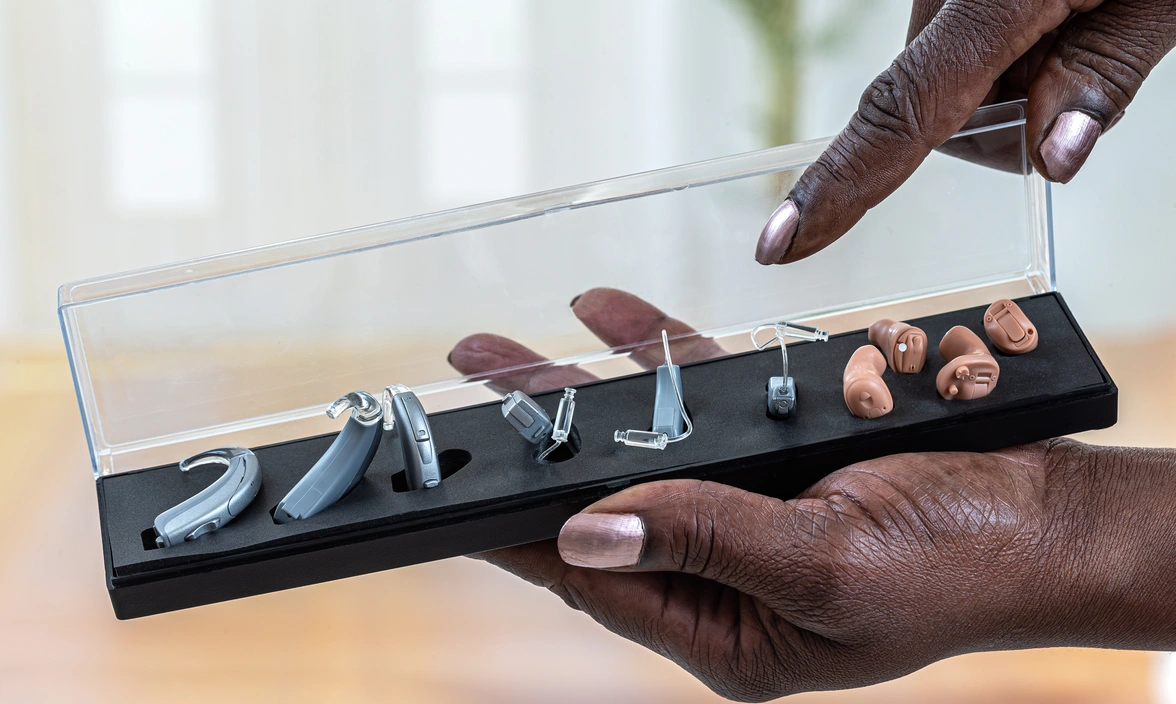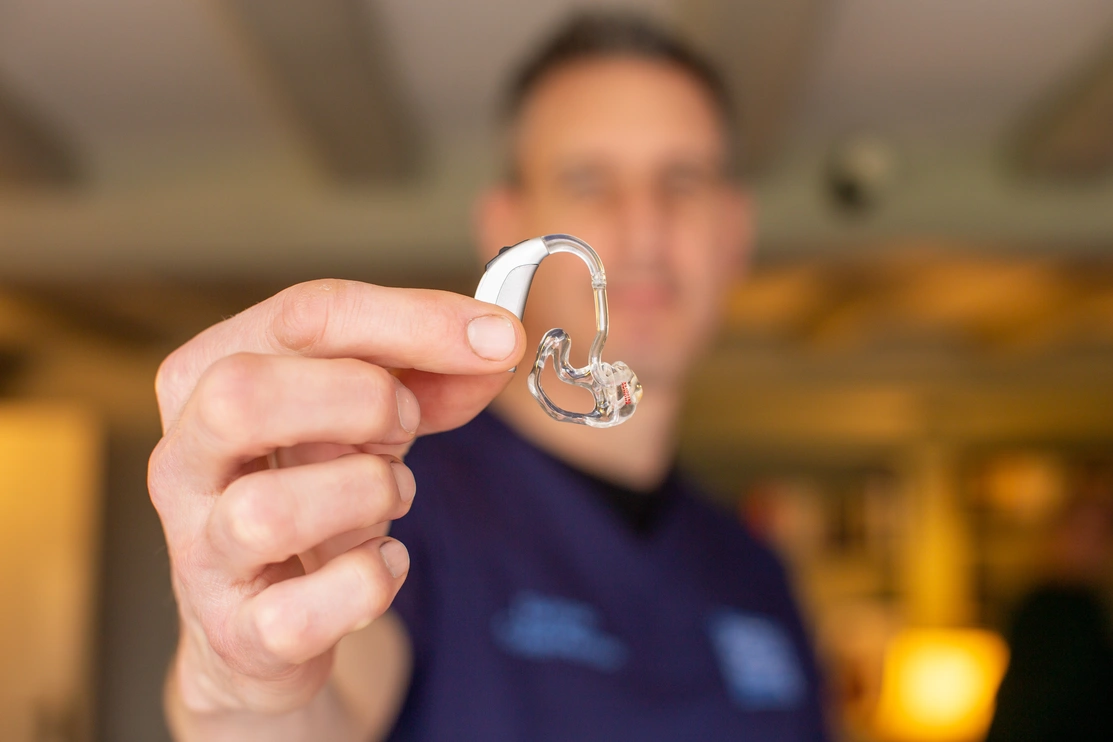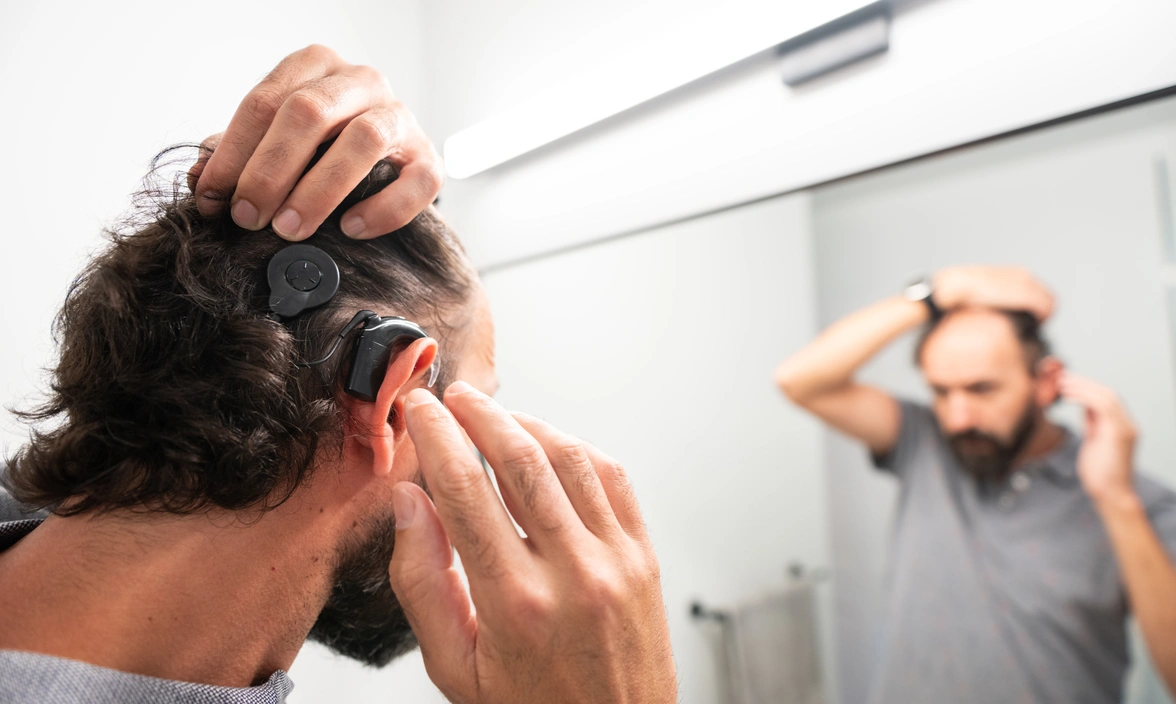Hearing aids
There are lots of different types of hearing aids to choose from. The right one for you will depend on your hearing loss, but there are other factors that should be considered by you and your audiologist.
There are lots of different types of hearing aids to choose from. The right one for you will depend on your hearing loss, but there are other factors that should be considered by you and your audiologist.

You might consider the visibility of the hearing aid to others – is it prominent or less noticeable? Maybe you want to choose a model that has certain features that fit in with your lifestyle.
Choice of what type of hearing aid is prescribed will depend on who issues your hearing aid. For example, NHS providers have less choice than a private paid-for audiology service.
Overall, choosing hearing aids is a personal choice, but whichever type is chosen or prescribed to you, your hearing needs must be prioritised.
This aid has two parts: the main part goes behind your ear. This is connected by a thin, clear tube to an ear fitting that sits inside your ear canal. Some ear fittings are made individually from ear impressions. However, many people now use small ear tips not made individually, but which fit very comfortably.
This aid is like a BTE aid, but smaller. An almost invisible wire connects the hearing aid to a receiver (tiny loudspeaker) fitted within the ear fitting sitting in your ear canal.
This sits completely within your outer ear (ITE) or just inside your ear canal (ITC).
This goes deeper into the ear canal, making it nearly or wholly invisible. This is the most discreet kind of hearing aid, but such tiny hearing aids may have hearing limitations for you.

The NHS can provide hearing aids at no charge on a long-term loan and all the extra support (appointments, tests, and consultations) are also free. You can usually get replacement batteries free of charge from your NHS audiology clinic. You might be charged for lost or damaged hearing aids.
The cost of hearing aids and professional services from a private audiologist can vary a lot. This can depend on the technology, fitting style, accessories and your individual needs. It could be anywhere from £300 to thousands of pounds.
Your audiologist will ensure that you have a full understanding of the cost and all the services which are included. Most professional services and aftercare are included in the cost of hearing aids from private audiologists.
It’s important to make sure that any price comparisons between different private providers are like for like. Some professionals include a wider range of services than others and it’s particularly important to know what services you’ll have access to after your hearing aid has been fitted.

There are four types of hearing implants available in the UK, each designed to meet different hearing needs and medical conditions.

This section explores useful apps as well as technology available in public spaces such as hearing loops.
Registered charity in England and Wales no. 293358 and in Scotland no. SC040486. Royal Patron HRH The Princess Royal.